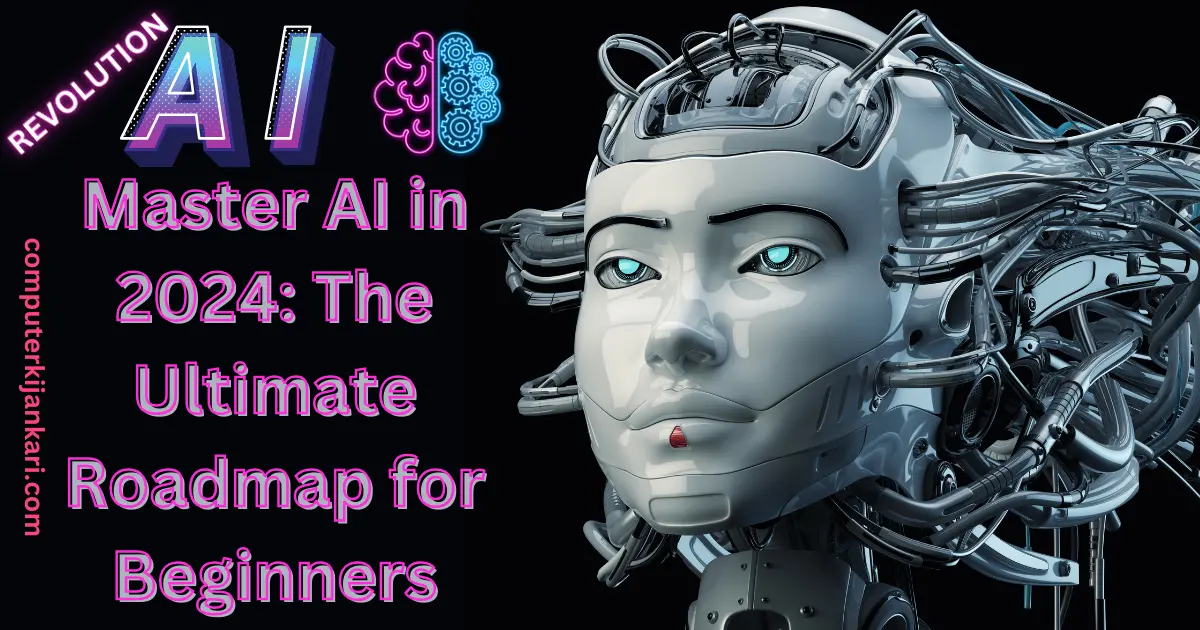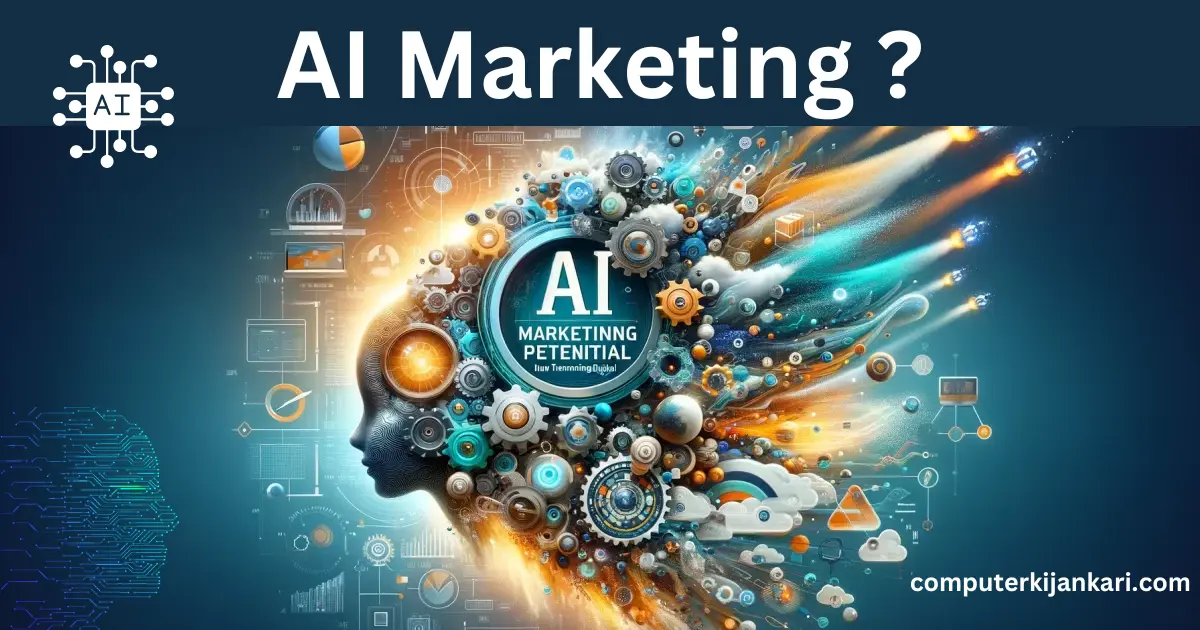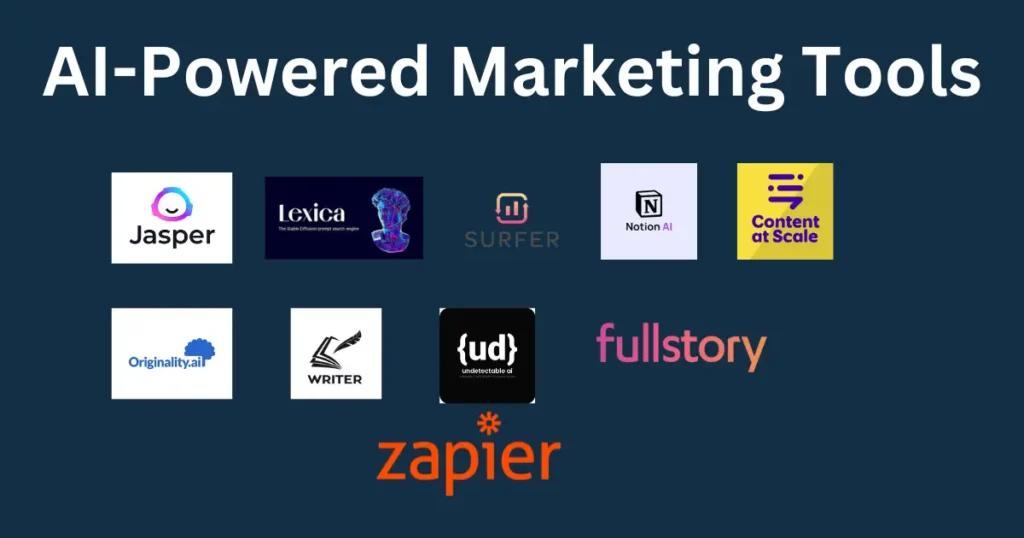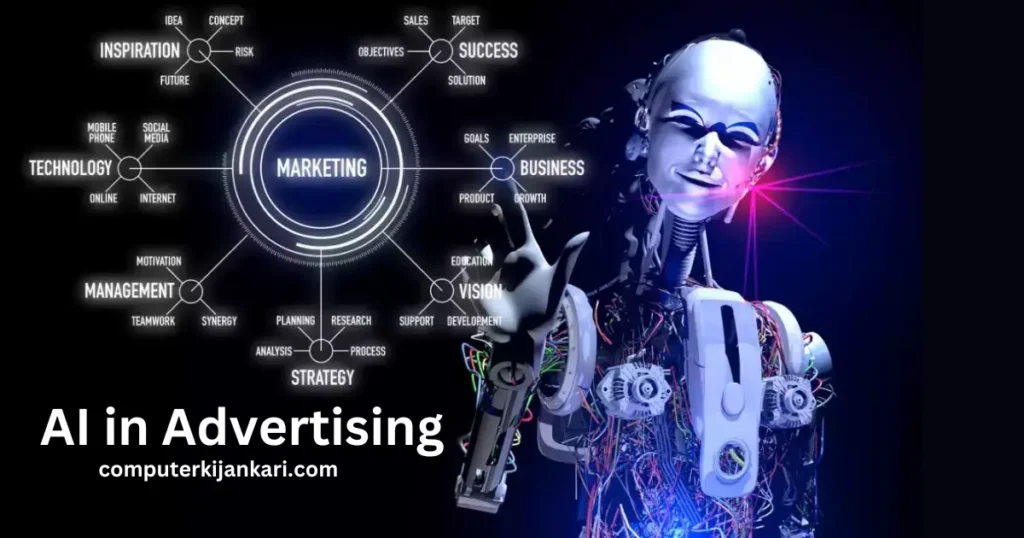Master Ai : Artificial Intelligence (AI) has swiftly become one of the most transformative technologies of the 21st century. As we step into 2024, the demand for AI expertise continues to grow across various industries. Whether you are a beginner or an experienced professional looking to enhance your skills, a structured roadmap can significantly expedite your learning journey. This comprehensive guide outlines the essential steps and resources needed to master AI in 2024.
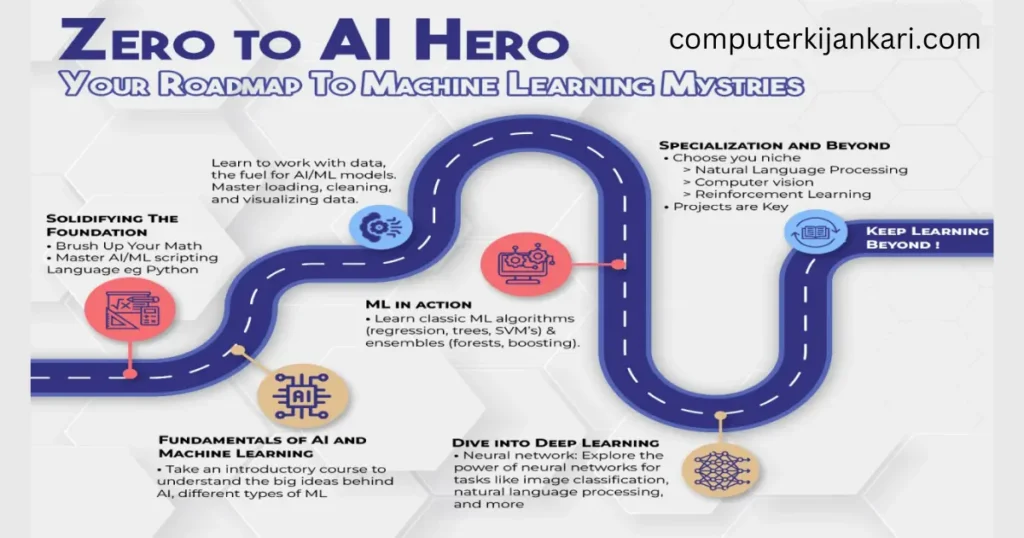
Understanding the Basics of Master AI
What is AI?
AI involves the simulation of human intelligence in machines that are programmed to think like humans and mimic their actions. The term can also apply to any machine that exhibits traits associated with a human mind such as learning and problem-solving.
Why Learn AI?
The applications of AI are vast, ranging from healthcare and finance to entertainment and autonomous vehicles. By learning AI, you can open doors to innovative career opportunities and contribute to groundbreaking advancements in technology.
Step 1: Grasping Fundamental Concepts
Learn Mathematics for AI
A strong foundation in mathematics is crucial for understanding AI algorithms and models. Key areas include:
- Linear Algebra: Essential for understanding data representation and transformations.
- Calculus: Important for optimization and understanding the behavior of models.
- Probability and Statistics: Critical for data analysis, understanding uncertainty, and making predictions.
Programming Skills
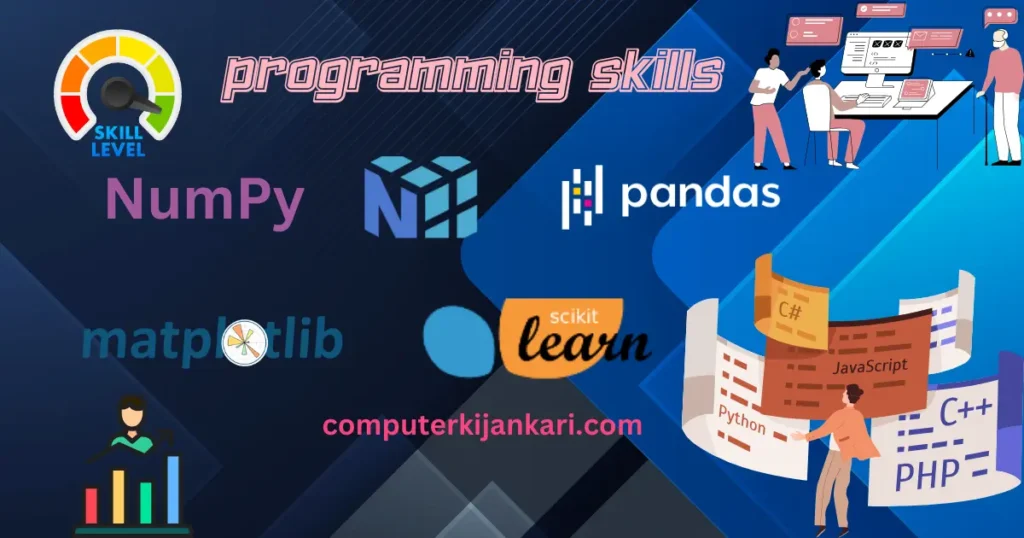
Proficiency in programming is fundamental to implementing AI algorithms. Python is the most widely used language in AI due to its simplicity and the availability of extensive libraries. Key libraries include:
- NumPy: The fundamental package for scientific computing with Python
- Pandas: pandas is a fast, powerful, flexible and easy to use open source data analysis and manipulation tool,built on top of the Python programming language.
- Matplotlib and Seaborn: Matplotlib is a comprehensive library for creating static, animated, and interactive visualizations in Python. Matplotlib makes easy things easy and hard things possible.
- Scikit-learn: Simple and efficient tools for predictive data analysis.
Step 2: Deep Dive into Machine Learning
Understanding Machine Learning (ML)
ML is a subset of AI that involves training algorithms to make predictions or decisions based on data. There are three main types of ML:
- Supervised Learning: Learning from labeled data.
- Unsupervised Learning: Identifying patterns in unlabeled data.
- Reinforcement Learning: Learning through trial and error.
Courses and Resources
To build a strong foundation in ML, consider the following resources:
- Online Courses: Platforms like Coursera, edX, and Udacity offer comprehensive ML courses.
- Books: “Hands-On Machine Learning with Scikit-Learn, Keras, and TensorFlow” by Aurélien Géron and “Pattern Recognition and Machine Learning” by Christopher M. Bishop are excellent starting points.
Step 3: Exploring Deep Learning
What is Deep Learning?
Deep Learning is a subset of ML that involves neural networks with three or more layers. These networks are capable of learning from large amounts of data and are particularly powerful for tasks such as image and speech recognition.
What is Deep Learning?
Familiarize yourself with popular deep learning frameworks such as:
- TensorFlow: Developed by Google, it is widely used for building and deploying deep learning models.
- PyTorch: Developed by Facebook’s AI Research lab, it is known for its flexibility and ease of use.
Recommended Courses
To deepen your understanding of deep learning, consider these courses:
- Deep Learning Specialization by Andrew Ng on Coursera
- Fast.ai’s Practical Deep Learning for Coders
Step 4: Specializing in AI Domains
Natural Language Processing (NLP)
This is a field of AI that deals with the interaction between computers and human language. Natural language processing algorithms can be used to understand the meaning of text, translate languages, and generate text.
NLP involves the interaction between computers and humans using natural language. Key areas of study include:
- Sentiment Analysis
- Text Classification
- Machine Translation
Computer Vision
This is a field of AI that deals with the ability of computers to see and understand the world. Computer vision algorithms can be used to identify objects, track movement, and recognize faces.
- Image Classification
- Object Detection
- Image Segmentation
Robotics
This is a field of AI that deals with the design, construction, operation, and application of robots. Robots are machines that can sense their environment and take actions in the world.
- Robot Perception
- Path Planning
- Control Systems
Step 5: Hands-on Projects and Real-World Applications
Build AI Projects
Practical experience is invaluable. Start by working on small projects and gradually take on more complex challenges. Here are some project ideas:
- Predictive Analytics: Build models to predict stock prices or sales trends.
- Image Recognition: Develop an application that can identify objects in images.
- Chatbots: Create an intelligent chatbot for customer service.
Participate in Competitions
Join AI competitions on platforms like Kaggle to test your skills against a global community and learn from other participants.
Step 6: Stay Updated with AI Trends
Follow AI Research
AI is a rapidly evolving field. Stay informed about the latest research by following journals, attending conferences, and joining AI communities. Some reputable journals include:
- Journal of Artificial Intelligence Research (JAIR)
- IEEE Transactions on Neural Networks and Learning Systems
Networking
Engage with the AI community by attending meetups, webinars, and conferences. Networking with professionals can provide valuable insights and opportunities for collaboration.
Curate your news feed: Follow reputable publications and websites focused on AI. Many offer newsletters or email alerts to keep you informed. Look for sources that align with your specific interests within AI, whether it’s machine learning, robotics, or ethics.
Dive into research papers: While it might sound intimidating, research papers offer a deep dive into the cutting edge of AI advancements. They present novel methodologies and findings that shape the field. Start by focusing on topics that interest you and gradually expand your knowledge base.
Attend conferences and webinars: Major AI conferences and online webinars are a treasure trove of insights. Listen to talks by leading researchers and industry experts to understand the latest breakthroughs and discussions surrounding AI. Many of these events are recorded and available online for later viewing.
Engage with online communities: Join online forums and communities dedicated to AI discussions. This is a great way to connect with other enthusiasts, ask questions, and exchange ideas on the latest trends and developments. Platforms like Kaggle offer a thriving community for AI professionals.
Consider taking courses or programs: There are numerous online courses and even degree programs available in AI. These can provide a structured learning environment to deepen your understanding of core concepts and emerging trends.
Step 7: Career Development in AI
Building a Professional Portfolio
Create a portfolio showcasing your projects, skills, and contributions to AI. This could include:
- GitHub Repositories: Share your code and collaborate on open-source projects.
- Blogs and Articles: Write about your AI experiences and insights to establish yourself as a thought leader.
Certifications
Earning certifications from recognized institutions can enhance your credibility. Some notable certifications include:
- Google Professional Machine Learning Engineer
- Microsoft Certified: Azure AI Engineer Associate
Job Hunting
Leverage platforms like LinkedIn, Indeed, and Glassdoor to search for AI job opportunities. Tailor your resume to highlight relevant skills and experiences.
Conclusion
Embarking on the journey to learn AI in 2024 is a rewarding endeavor. By following this roadmap, you can systematically build your knowledge and skills, positioning yourself at the forefront of this dynamic field. Remember, continuous learning and hands-on practice are key to mastering AI.
